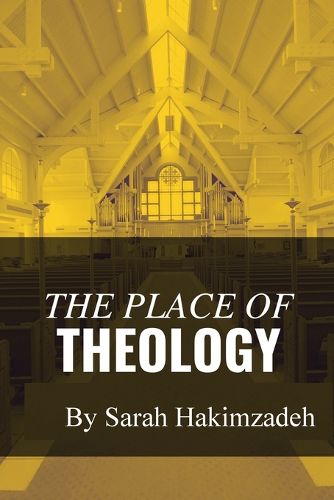Readings Newsletter
Become a Readings Member to make your shopping experience even easier.
Sign in or sign up for free!
You’re not far away from qualifying for FREE standard shipping within Australia
You’ve qualified for FREE standard shipping within Australia
The cart is loading…






This title is printed to order. This book may have been self-published. If so, we cannot guarantee the quality of the content. In the main most books will have gone through the editing process however some may not. We therefore suggest that you be aware of this before ordering this book. If in doubt check either the author or publisher’s details as we are unable to accept any returns unless they are faulty. Please contact us if you have any questions.
As the twentieth century dawned, voices both inside and outside the Christian Church began questioning religion's central place in human life. Had civilization progressed to the point where faith was no longer necessary? Were religious principles already ingrained in humanity's moral compass, or did religion still serve an essential role in guiding ethical and social development? These questions became particularly pressing in an era marked by rapid scientific advancements, shifting philosophical paradigms, and unprecedented global conflicts.
This study examines the contrasting perspectives of two influential thinkers: Dietrich Bonhoeffer, a theologian whose reflections on faith, ethics, and the Christian response to secularism were shaped by his resistance to Nazi Germany, and Paul Ramsey, an ethicist who sought to reconcile Christian morality with contemporary issues in politics, war, and social responsibility. While Bonhoeffer explored the role of faith in an increasingly secular world, emphasizing the concept of "religionless Christianity," Ramsey focused on the application of Christian ethics in public policy and international relations.
By analyzing their works, beliefs, and the historical contexts in which they lived, this study seeks to illuminate the ongoing debate about religion's relevance in modern society. It will explore how their ideas continue to shape contemporary discussions on morality, governance, and the ethical responsibilities of individuals and nations. As we move firmly into the twenty-first century, this examination of Bonhoeffer and Ramsey provides critical insights into whether religion remains an indispensable force in shaping civilization-or if humanity has, at last, outgrown its need for it...
$9.00 standard shipping within Australia
FREE standard shipping within Australia for orders over $100.00
Express & International shipping calculated at checkout
This title is printed to order. This book may have been self-published. If so, we cannot guarantee the quality of the content. In the main most books will have gone through the editing process however some may not. We therefore suggest that you be aware of this before ordering this book. If in doubt check either the author or publisher’s details as we are unable to accept any returns unless they are faulty. Please contact us if you have any questions.
As the twentieth century dawned, voices both inside and outside the Christian Church began questioning religion's central place in human life. Had civilization progressed to the point where faith was no longer necessary? Were religious principles already ingrained in humanity's moral compass, or did religion still serve an essential role in guiding ethical and social development? These questions became particularly pressing in an era marked by rapid scientific advancements, shifting philosophical paradigms, and unprecedented global conflicts.
This study examines the contrasting perspectives of two influential thinkers: Dietrich Bonhoeffer, a theologian whose reflections on faith, ethics, and the Christian response to secularism were shaped by his resistance to Nazi Germany, and Paul Ramsey, an ethicist who sought to reconcile Christian morality with contemporary issues in politics, war, and social responsibility. While Bonhoeffer explored the role of faith in an increasingly secular world, emphasizing the concept of "religionless Christianity," Ramsey focused on the application of Christian ethics in public policy and international relations.
By analyzing their works, beliefs, and the historical contexts in which they lived, this study seeks to illuminate the ongoing debate about religion's relevance in modern society. It will explore how their ideas continue to shape contemporary discussions on morality, governance, and the ethical responsibilities of individuals and nations. As we move firmly into the twenty-first century, this examination of Bonhoeffer and Ramsey provides critical insights into whether religion remains an indispensable force in shaping civilization-or if humanity has, at last, outgrown its need for it...